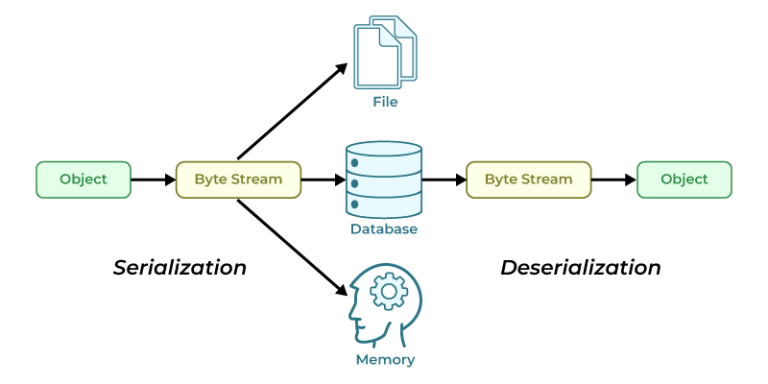Knowledge evaluation is a cornerstone of recent decision-making, empowering companies and researchers alike to extract insights from huge datasets. In Python, serialization performs an important function in getting ready and storing information for evaluation. Among the many varied serialization strategies out there, Pickle stands out as a strong software for information evaluation duties. On this article, we’ll discover why Pickle is a superb alternative for information evaluation in comparison with CSV, Excel, and JSON, backed by code examples and comparisons.
Preservation of Knowledge Integrity: Pickle excels at preserving the integrity of complicated Python objects, making it excellent for storing information constructions generally encountered in information evaluation duties, reminiscent of pandas DataFrames or machine studying fashions. In contrast to CSV and JSON, which can require extra processing to signify nested constructions precisely, Pickle maintains the unique construction of the information seamlessly.
Effectivity in Storage and Loading: Pickle’s binary serialization format ends in environment friendly storage and quick loading occasions, particularly for big datasets. When coping with terabytes of knowledge or complicated hierarchical constructions, Pickle outperforms CSV and JSON in each cupboard space utilization and loading pace. This effectivity is essential for information analysts who must iterate rapidly on evaluation duties with out compromising efficiency.
Seamless Integration with Python Ecosystem: As a local Python serialization format, Pickle integrates seamlessly with the Python ecosystem, together with common information evaluation libraries like pandas, NumPy, and scikit-learn. Knowledge analysts can serialize and deserialize objects immediately with out the necessity for extra conversion steps, streamlining the evaluation workflow and lowering potential sources of errors.
CSV: Whereas CSV is extensively used for tabular information, it falls brief when dealing with complicated information constructions or preserving information varieties precisely. Knowledge analysts usually encounter challenges with CSV when coping with hierarchical information or blended information varieties inside a column. Moreover, CSV lacks help for customized objects and requires guide parsing for non-tabular constructions.
Excel: Excel information provide superior options for information evaluation and visualization, however they is probably not essentially the most environment friendly alternative for large-scale information processing duties. Loading information from Excel information may be slower in comparison with Pickle, particularly for big datasets, and Excel’s proprietary format could introduce compatibility points when sharing information throughout totally different platforms or methods.
JSON: JSON is light-weight and human-readable, making it appropriate for information interchange and internet purposes. Nevertheless, JSON’s text-based format may end up in bigger file sizes in comparison with Pickle’s binary format, resulting in slower loading occasions and elevated storage necessities. JSON additionally lacks help for customized objects and should require extra information validation steps throughout deserialization.
Let’s evaluate loading occasions for a big pandas DataFrame serialized utilizing Pickle, CSV, Excel, and JSON:
import pandas as pd
import time# Pattern information
information = pd.DataFrame({'A': vary(1000000), 'B': vary(1000000)})
# Serialize information
information.to_pickle('information.pkl')
information.to_csv('information.csv', index=False)
information.to_excel('information.xlsx', index=False)
information.to_json('information.json', orient='information')
# Measure loading occasions
start_time = time.time()
loaded_data = pd.read_pickle('information.pkl')
print("Pickle loading time:", time.time() - start_time)
start_time = time.time()
loaded_data = pd.read_csv('information.csv')
print("CSV loading time:", time.time() - start_time)
start_time = time.time()
loaded_data = pd.read_excel('information.xlsx')
print("Excel loading time:", time.time() - start_time)
start_time = time.time()
loaded_data = pd.read_json('information.json')
print("JSON loading time:", time.time() - start_time)
# output is
'''
Pickle loading time: 0.009970664978027344
CSV loading time: 0.1296549129486084
Excel loading time: 11.578818082809448
JSON loading time: 0.6331911087036133
'''
For information evaluation duties, Pickle emerges as a superior alternative resulting from its potential to protect information integrity, effectivity in storage and loading, and seamless integration with the Python ecosystem. Whereas CSV, Excel, and JSON have their strengths in particular use circumstances, Pickle’s efficiency and adaptability make it an indispensable software for information analysts in search of to unlock the total potential of their datasets. By leveraging Pickle serialization, information analysts can streamline their evaluation workflows, speed up insights discovery, and drive knowledgeable decision-making.
